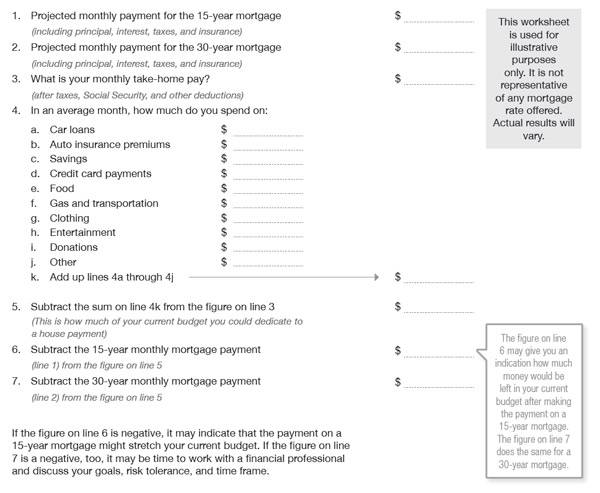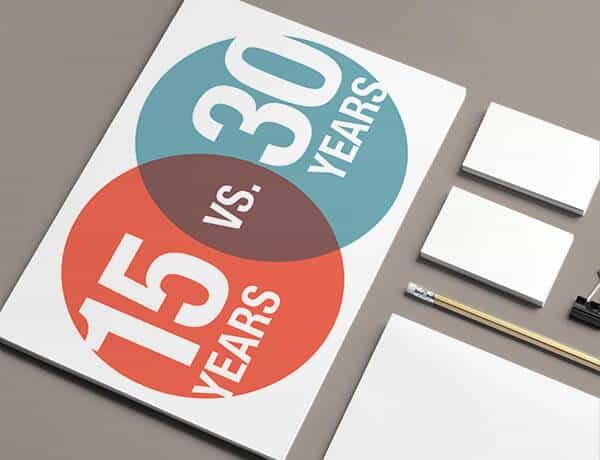Please provide your information and submit this form. Our team will be in touch with you shortly.
When selecting a fixed-rate mortgage, a prospective borrower has to determine how many years to finance the loan. Some financial institutions offer 10-year and 20-year, fixed-rate mortgages as well as 15-year and 30-year, fixed-rate home loans.
For the purpose of comparison, this worksheet takes a look at 15-year and 30-year, fixed-rate loans.
The payments on a 30-year mortgage are generally lower than 15-year loans, but their interest rates tend to be higher. The lower payment comes from spreading out the loan over twice as many payments. Because of the longer timeframe, a 30-year mortgage owner pays more in interest payments than a 15-year mortgage holder.

A 15-year mortgage is paid off twice as quickly as a 30-year mortgage, which may allow the home buyer to build equity at an accelerated rate. The payments on a 15-year loan are higher – but they aren’t usually twice as high – as a 30-year loan.
To get a better idea of the differences, take a few minutes and add some numbers to the accompanying worksheet.



